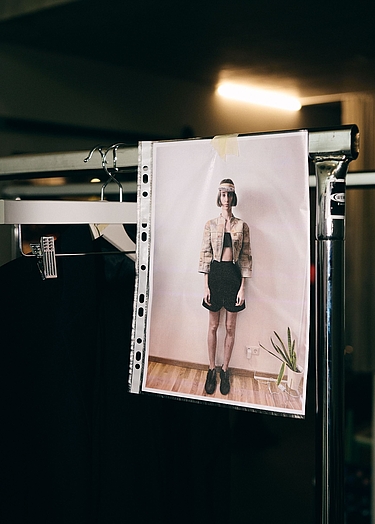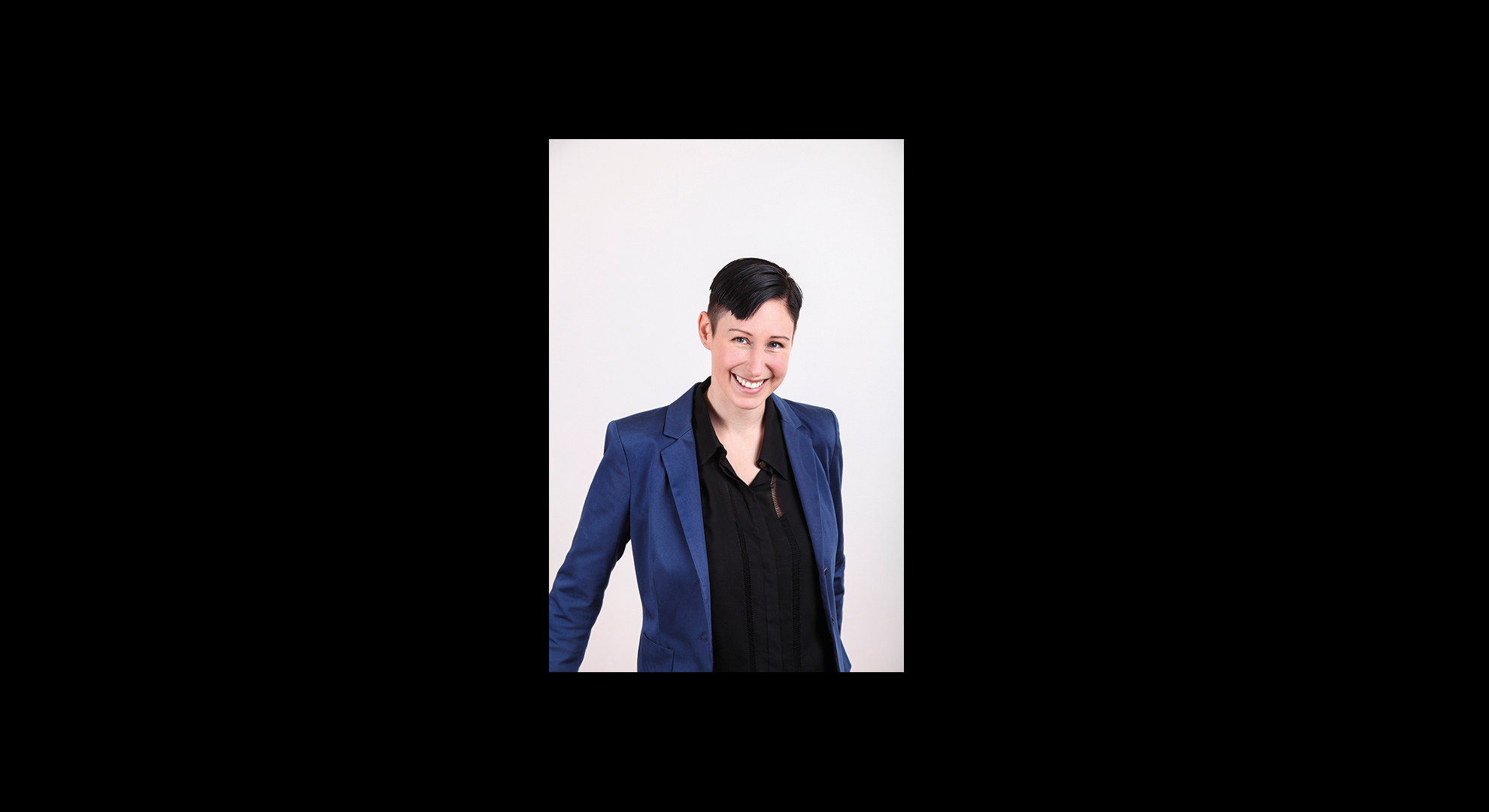
Interview

After the Ethical Fashionshow and the Greenshowroom, the trade fair duo for sustainable and fair fashion have moved into the Kraftwerk and introduced a new concept in January, further developments and changes lay ahead.
We have talked to the creative director Magdalena Schaffrin. She explained to us, how under the new name ‘Neonyt’, a global hub for future-driven, sustainable fashion is going to be build.
Ms. Schaffrin, you founded the trade fair Greenshowroom in 2009 and you’re creative director of the Ethical Fashion Show Berlin and the Greenshowroom – you’ve been present since the very beginning. Looking back: How has Berlin developed and grown with regard to fair and economical fashion up to this point?
Sustainability is a strongly established topic in Berlin. But not only here, but in general, a stronger awareness of the consumers for the negative aspects within the textile industry is developing. Sustainable fashion is no longer a niche-topic. And Berlin with its various economic, fairly producing labels, sustainable concept-stores, and events stays the centre and pioneer of the industry.
The sustainable trade fair duo Greenshowroom and Ethical Fashion Show Berlin is taking place for the last time with their established names and concepts. How did the idea to combine both fairs come up?
With each trade fair we’ve come so far already: The trade fair duo is Europe-wide, if not even worldwide, the biggest platform for sustainable fashion. But we won’t rest on the status quo. Furthermore, Messe Frankfurt as an organizer is investing progressively into the development of innovative topics. The first step was the move into the Kraftwerk and the launch of the FashionSustain-conference – plus the cooperation with the #FashionTech by Premium Group. The next level is now to combine and develop the trade fairs further into Neonyt, a global hub for future-driven fashion and sustainable innovations. We’re offering the space for topics of the future of fashion.
What can we expect of Neonyt in the future? What changes for the exhibitors and visitoes – and what changes for you?
Visitors can expect an all-around package of inspiration: from the trade fair as B2B-platform of the hub, the fashion show as fashion highlight, to the FashionSustain-conference and keynotes of visionaries of the industry, plus event such as Nightshift or the blogger and influencer event Prepeek powered by Fashion Changers – Neonyt puts focus on topics such as business, inspiration, knowledge and community. Additionally, we strengthen the fashion profile – amongst other things by the fashion curation of the exhibitions done by myself, in cooperation with Claudia Hofman for the fashion shows and fashion events.
What are your personal highlights of the upcoming trade fairs? About which participation of what newcomer or label are you especially excited?
My personal highlight is the fashion show Greenshowroom Selected on Tuesday evening at 7pm. Furthermore, I’m looking forward to see many loyal exhibitors. Lanius, Langerchen, Nat-2, Jan ́n June, to mention only a few. New interesting brands are for example: Ecoalf, which have their own recycling projects, to create their collection out of plastic waste from the oceans. Or two swimwear brands: Mymarini und Margaret & Hermione. This season, we put focus on fashion from Africa. With regard to this, we’ll discuss the FashionImpact and how fashion can help craftspeople with two entrepeneurs from Sri Lanka and Ethiopia on Thursday.
The exhibiting labels will be split as part of the green trade fairs – what sections will there be at the current Fashion Week_? What catergories brings the biggest movement right now in your opinion?
The Ethical Fashion Show Berlin is split into the styles Moderncasual, Craft and Urbanvibe, the Greenshowroom stands for Highfashion and design-driven collections. That’s how visitors can easily navigate. For the first time, there’ll be a beauty section, too. I think that especially craft is a growing topic: the growing digitalisation also brings a deeper appreciation for traditional and modern interpreted craftsmanship.
Is it true that the labels and producers, who present as part of the Ethical Fashion Show and the Greenshowroom, need to meet specific requirements with regard to a economical and fair production? What do these requirements or guidelines look like and how can you check and guarantee the compliance?
Whoever exhibits at our trade fairs, needs to go through a sustainability-check. This means, all labels and brands need to answer a questionnaire first and provide us information about their philosophy, their collections, and the used materials. It’s about economic and social criteria, certificates which proof exactly that, and about transparency in the production chain. Clearly, more than half of the used material of the collection need to meet the requirements – to only use a small amount of cotton isn’t enough. If a label can’t show social and economical engagement, we like to provide help, so that a future trade fair booth might be possible in the future. Additionally, Messe Frankfurt does random sampling and check ups of the labels.
With regard to ethical and sustainable fashion, many buzzwords such as “Upcycling”, “closed loop model”, “transparent delivery chains” or “Slow Fashion”, are flying around. This goes to show, how big the public interest for this department is – What are the most important aspect of sustainable fashion in your opinion?
To me, sustainable fashion means high quality fashion, because economical and social aspects are a essential part of quality. A high quality product can’t be produced by a child and can’t contain harmful chemicals. Another important aspect of sustainable fashion is a transparent delivery chain.
Sustainability is a unique selling point of the Berlin Fashion Week. Can you define a little more in detail, why Berlin is ahead of other fashion metropolises?
Exactly, sustainability is a unique selling point of the Berlin Fashion Week. The city is celebrated for this topic internationally. With Greenshowroom and Ethical Fashion Show Berlin, Berlin contains the biggest platform for sustainable fashion – this is how Berlin is ahead of fashion metropolises such as Paris or London. And that’s why Berlin is the place, where most international fairly and economically produced brands present themselves.
How well do do sustainability and digitalisation combine each other – do these two aspects go together or are they separate developments?
Thinking about innovative materials, such as tights made out of recycled fish nets, or new automated producing processes, which allow a local production, it becomes clear, that both topics of the future are linked. For a future-driven fashion industry, sustainability and digitalisation offer huge chances and possibilities for global delivery chains of the textile industry, with regard to transparacy and sustainabile, and hence social production.
What does your vision of an ideal and sustainable fashion industry look like? And what are the biggest challenges on the path to such? How far is Berlin?
My vision is, that we won’t talk about sustainable fashion in the future, but that a social and economic production is natural. When will this happen? I don’t know but I’m an optimist!
Many thanks, Ms. Schaffrin.
Magdalena Schaffrin is a known face of fashion of Berlin’ fashion scene and was featured in our „Faces of Fashion“ video-series.
The Greenshowroom takes place as part of the Berlin Fashion Week July, for the first time ever including a fashion show slot at MBFW. The show at MBFW will take place on Tuesday, at 7pm at eWerk Berlin, or alternatively, can be watched online via the Livestream.
The Greenshowroom will take place for the last time with its old concept on July 3rd until 5th, at Kraftwerk Berlin. In the future, together with Ethical Fashion Show, it’ll be Neonyt – a joined platform for sustainable fashion at Berlin Fashion Week.